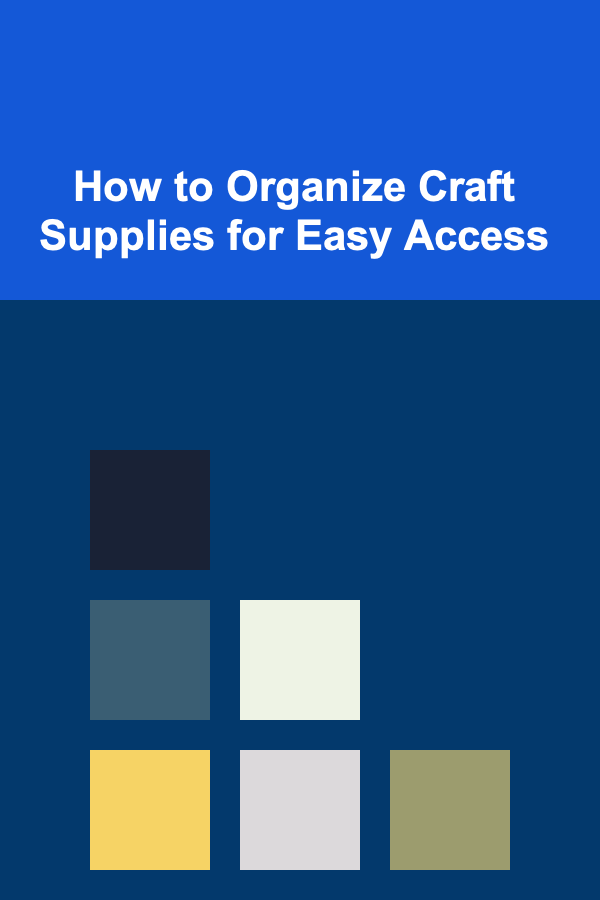
How to Stay Financially Healthy While Paying Off Credit Card Debt
ebook include PDF & Audio bundle (Micro Guide)
$12.99$10.99
Limited Time Offer! Order within the next:

Credit card debt can be one of the most insidious financial burdens a person can face. The allure of immediate gratification, the convenience of credit, and the ability to defer payment can lead to overspending and a mounting balance that becomes difficult to manage. However, despite the financial challenges associated with credit card debt, it is possible to regain control and stay financially healthy while working toward paying off these debts. In this article, we will explore actionable strategies and mindset shifts that can help you remain financially stable and ultimately pay off credit card debt.
Understanding the Impact of Credit Card Debt
Before diving into strategies for managing credit card debt, it is essential to first understand the impact of this type of debt on your financial health. Credit cards often come with high-interest rates, and if not paid off in full each month, you will be charged interest on the remaining balance. The longer you carry a balance, the more you pay in interest, which makes it harder to pay down the principal amount.
Beyond the financial costs, credit card debt can also take an emotional toll. It can lead to stress, anxiety, and feelings of being overwhelmed. Additionally, carrying high credit card balances can negatively affect your credit score, making it more difficult to qualify for loans or secure favorable interest rates in the future.
By taking steps to stay financially healthy while paying off your credit card debt, you can reduce both the financial and emotional burdens associated with this debt, setting yourself up for long-term financial success.
Assessing Your Current Financial Situation
The first step to managing your finances while paying off credit card debt is to assess your current financial situation. Understanding where you stand financially allows you to create a clear and realistic plan for paying down your debt while maintaining your financial health.
Step 1: List All of Your Debts
Start by listing all of your credit card debts, including the balance, the interest rate, and the minimum monthly payment. This will give you a comprehensive view of your credit card obligations and help you prioritize which debts to pay off first. Don't forget to include any other debts you may have, such as loans or mortgages, to get a full picture of your financial obligations.
Step 2: Review Your Monthly Income and Expenses
Next, review your monthly income and expenses. This will help you understand how much money you have available each month to pay down your debt while covering essential living expenses. To make this process easier, create a simple budget that includes:
- Fixed expenses: Rent/mortgage, utilities, insurance, subscriptions, etc.
- Variable expenses: Groceries, transportation, entertainment, and discretionary spending.
- Savings goals: Emergency fund contributions, retirement savings, etc.
If your monthly expenses exceed your income, this is a red flag that will need to be addressed before you can effectively tackle your credit card debt.
Step 3: Calculate Your Debt-to-Income Ratio
Your debt-to-income (DTI) ratio is a critical metric for assessing your financial health. It is calculated by dividing your total monthly debt payments by your monthly income. Lenders typically use this ratio to assess your ability to repay debt. A high DTI ratio indicates that a significant portion of your income goes toward debt repayment, which may limit your ability to save or invest for the future.
As a general guideline, aim for a DTI ratio below 36%, but if yours is higher, you may need to focus on reducing your debt before taking on additional financial commitments.
Develop a Debt Repayment Strategy
Once you've assessed your financial situation, the next step is to develop a debt repayment strategy that fits your goals and capabilities. Paying off credit card debt requires discipline, patience, and a well-structured plan. There are several strategies available, and the right one for you will depend on your specific financial circumstances.
Debt Snowball Method
The debt snowball method involves paying off your smallest debts first while making minimum payments on larger debts. Once the smallest debt is paid off, you move on to the next smallest debt, and so on. The idea is that paying off small debts quickly provides motivation and a sense of accomplishment, helping you stay committed to your financial goals.
Pros:
- Provides quick wins, which can boost your motivation.
- Simple and easy to implement.
- Can help you build momentum and confidence in managing debt.
Cons:
- You may pay more in interest over time compared to other methods.
Debt Avalanche Method
The debt avalanche method involves focusing on paying off the debt with the highest interest rate first. Once the highest-interest debt is paid off, you move on to the next highest, and so on. This method saves you money in interest over the long term but requires more patience, as the first few debts may take longer to pay off.
Pros:
- Saves money on interest payments in the long term.
- Focuses on reducing the overall debt burden more efficiently.
Cons:
- It may take longer to see progress, especially if your largest debt is also your highest-interest debt.
- Requires more discipline and emotional resilience.
Balance Transfer and Consolidation
If you have multiple high-interest credit cards, one strategy to consider is transferring your balances to a card with a lower interest rate. Many credit cards offer introductory 0% APR for balance transfers for a set period (usually 12 to 18 months). During this promotional period, you can focus entirely on paying down the principal without accumulating more interest.
Alternatively, you may consider consolidating your credit card debt with a personal loan. A consolidation loan allows you to combine all your credit card balances into a single loan with a potentially lower interest rate.
Pros:
- Can save money on interest and simplify debt management.
- Lower monthly payments (if the loan term is extended).
Cons:
- There may be fees involved in balance transfers or consolidation.
- Requires good credit to qualify for favorable terms.
Cut Unnecessary Expenses
While paying off credit card debt, it's essential to free up as much money as possible to put toward your debt. One of the most effective ways to do this is by cutting unnecessary expenses. Review your monthly budget and identify areas where you can reduce spending.
Areas to Consider Cutting:
- Dining out: Consider cooking meals at home instead of eating out.
- Entertainment subscriptions: Review your streaming services and cancel those you don't use.
- Shopping habits: Avoid impulse purchases, and focus on only buying essentials.
- Transportation costs: Use public transportation or carpool if possible, and minimize driving to save on gas.
While cutting back on discretionary spending can be difficult, it's an essential step to accelerate your debt repayment. The more you can save, the faster you can eliminate your credit card debt and start building a healthier financial future.
Build an Emergency Fund
As you pay down your credit card debt, it's also important to build an emergency fund. An emergency fund provides a financial cushion in case of unexpected expenses, such as medical bills, car repairs, or job loss. Without an emergency fund, you may be forced to rely on credit cards for unexpected expenses, which can push you further into debt.
Start Small
If you're just starting to build your emergency fund, aim for a small, attainable goal, such as $500 to $1,000. Once you've reached that target, continue building it to cover 3 to 6 months' worth of living expenses. Having this financial cushion will help you avoid adding to your credit card debt in the future.
Stay Motivated and Accountable
Staying motivated while paying off credit card debt can be challenging, especially when it feels like progress is slow. To stay on track, find ways to keep yourself accountable and celebrate small wins along the way.
Set Milestones
Break your debt repayment plan into smaller milestones. For example, set a goal to pay off a certain percentage of your total debt by the end of each month or quarter. Achieving these milestones will give you a sense of accomplishment and encourage you to keep moving forward.
Track Your Progress
Use tools such as budgeting apps or spreadsheets to track your debt repayment progress. Seeing how much you've paid off can boost your motivation and help you stay focused on your ultimate goal of becoming debt-free.
Reward Yourself (Responsibly)
When you reach significant milestones, reward yourself in a responsible way. For instance, treat yourself to a small, budget-friendly activity, such as a movie night or a day out in nature. These rewards can provide a sense of enjoyment without derailing your progress.
Avoid Accumulating More Debt
As you focus on paying off your credit card debt, it's critical to avoid accumulating more debt. To do this, make sure to:
- Avoid using credit cards: While paying off your credit card debt, try to avoid using them for new purchases. If necessary, freeze or cut up your cards to remove the temptation.
- Set realistic budgets: Stick to a budget that allows you to live within your means while still making significant progress on debt repayment.
- Use cash or debit: Whenever possible, use cash or a debit card for purchases to prevent further debt accumulation.
Staying disciplined during this phase will ensure that you do not fall back into the trap of credit card debt once you've started to make progress.
Seek Professional Help if Necessary
If you're struggling to manage your credit card debt, don't hesitate to seek professional help. Credit counseling services can offer valuable advice and may even be able to negotiate with creditors on your behalf. In extreme cases, debt settlement or bankruptcy may be viable options, but these come with long-term financial consequences and should only be pursued after thorough consideration.
Conclusion
Paying off credit card debt is undoubtedly a challenging task, but it is possible to stay financially healthy while doing so. By assessing your current financial situation, developing a debt repayment strategy, cutting unnecessary expenses, and building an emergency fund, you can take control of your finances and work toward becoming debt-free. Maintaining motivation and discipline throughout the process will ensure that you not only pay off your debt but also build a solid foundation for a more secure financial future.

How to Educate Clients on Healthy Eating Habits and Food Choices
Read More
How to Invest in Stocks as a Beginner
Read More
How to Organize Craft Supplies for Easy Access
Read More
How to Organize Party Supplies in Your Pantry
Read More
How to Master First Aid for Pets
Read More
Supporting Cognitive Development in Early Childhood
Read MoreOther Products

How to Educate Clients on Healthy Eating Habits and Food Choices
Read More
How to Invest in Stocks as a Beginner
Read More
How to Organize Craft Supplies for Easy Access
Read More
How to Organize Party Supplies in Your Pantry
Read More
How to Master First Aid for Pets
Read More